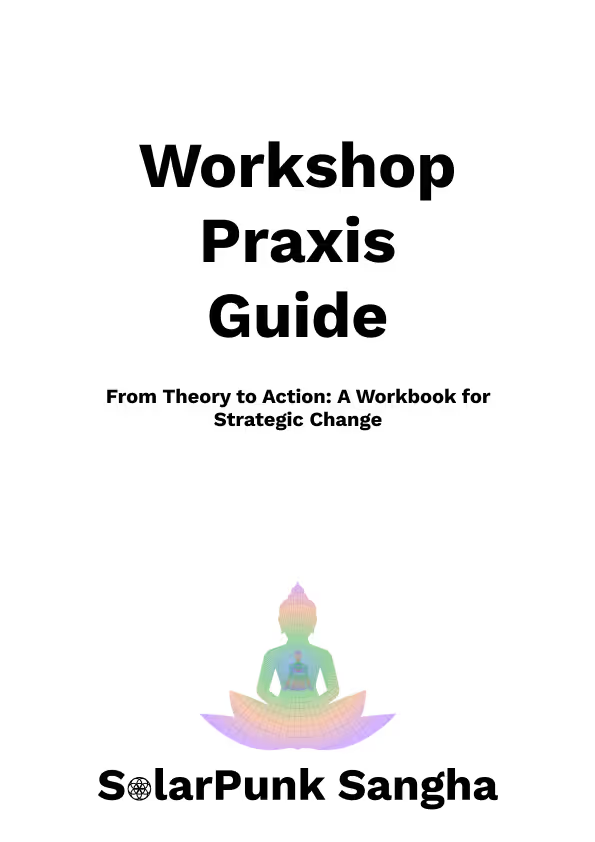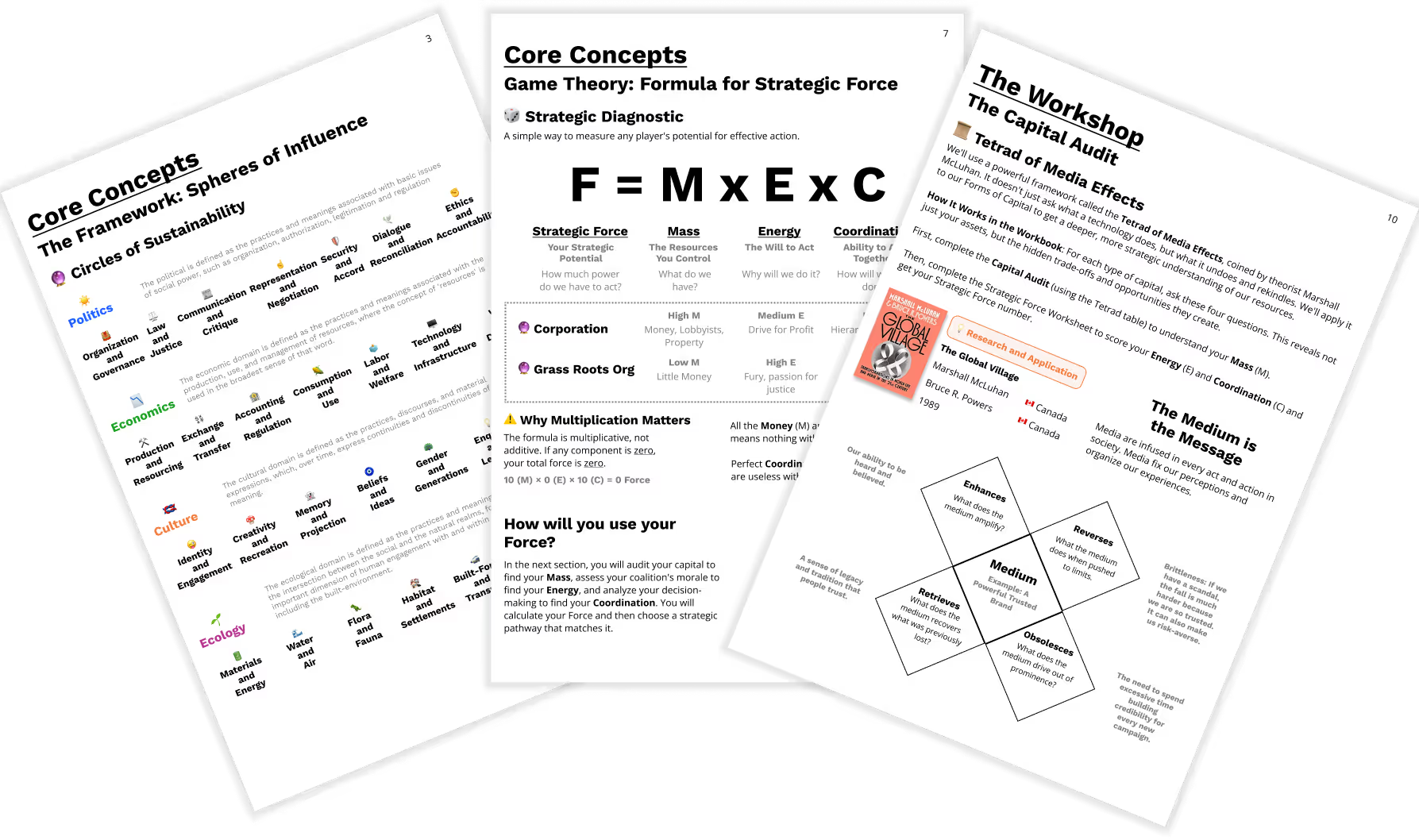Workshops
Community Action Workshops: Build Your SolarPunk Future
Join a SolarPunk Sangha workshop. Learn our framework for regenerative action, download our free workbook, and explore strategic actions for sustainability, spirituality, politics, economics, and culture.
Build Your Capacity for Regenerative Action
Our workshops are a space for learning, connection, and tangible change. Move from theory to practice with a community dedicated to creating a more beautiful, just, and ecological world.

🌕 What to Expect
Each workshop is a guided, collaborative session based on our unique framework. We move beyond doom and gloom to focus on actionable solutions and mutual support. You will:
Learn
A practical framework for analyzing problems and designing solutions.
Reflect
On inner dimensions of outer change, integrating community.
Plan
A concrete next step for your personal or community projects.
Our comprehensive workbook is your key to the workshop and your guide beyond it.
It’s designed for both first-time participants and seasoned practitioners to structure their thinking and action. Inside you'll find:
It’s designed for both first-time participants and seasoned practitioners to structure their thinking and action. Inside you'll find:
Explanations of our core concepts: Circles of Sustainability, Game Theory, Mutual Aid, and more.
Guided exercises for personal reflection and systems thinking.
Worksheets for project planning and stakeholder mapping.
Lists of resources for deeper dives, reflection, and systems thinking.

🌕 How to run a Shop
Supporting documents to help facilitate and manage a workshop before, during, and after.
Strategic Action Implementation Assessment Tool
A comprehensive readiness evaluation framework for SolarPunk Sangha workshop participants.
Quick Assessment & Facilitator Guide
For workshop participants to rapidly evaluate action readiness.
Workshop Materials & Success Tracking System
Large format posters for workshop wall display.
Facilitator Training Guide: Strategic Action Assessment System
A comprehensive guide for training facilitators to implement the SolarPunk Sangha Strategic Action Assessment methodology.
Advanced Conflict Resolution: Countering Sabotage Tactics in Workshops
A specialized training module for identifying and neutralizing disruptive behaviors based on an oppressive organization's Simple Sabotage Manual.
Circles of Sustainability Facilitator Certification Rubrics
Comprehensive assessment framework aligning facilitator competencies with the four domains of sustainability.



